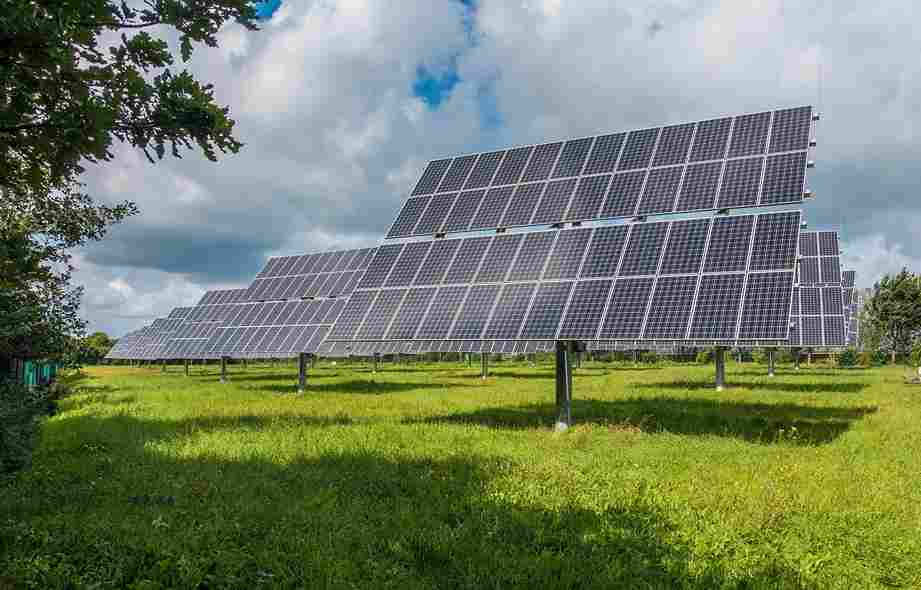Solar Panels Benefits and Disadvantages - Discover if solar is right for your home!

Before engaging in any investment, it is important to understand the advantages and the drawbacks of such investments, like solar panels. Solar power has, in recent times, turned out to be quite a stable source of clean power. A lot of the homes, businesses, and schools are now also going with solar conversion, but a person has to be cognizant of the good and the bad.
This article will provide you with a full picture of solar panels' benefits and disadvantages, helping you decide if they are the right fit for your property in 2025.
What Are the Benefits of Solar Panels
Solar panels are becoming less and less unpopular, and there are numerous good reasons why this is so. Now, it is time to hop into the best advantages of using solar energy.
1. Lower Electricity Bills
Among the myriad of reasons that make people install solar panels is to cut down on electricity expenses. The installation of solar panels will make you less dependent on grid electricity. These savings may supplement the original expense of the system in a number of years and proceed to reduce your bills even through the decades.
2. Clean and Renewable Energy
Solar panels yield clean energy that is green without any form of intermediary. This saves your carbon footprint and helps conserve the environment. Solar energy is not harmful in its effects on the air like fossil fuel.
3. Low Maintenance Requirements
Systems of solar energy are very lightly maintained. Most of these systems require minimal cleaning after installation with a few times per year. This has no moving parts, thus there is minimal wear and tear.
4. Increases Property Value
Solar-powered homes are more appealing to interested buyers. The home that is run on solar energy is a good investment in the future because the savings will follow. It is also worth increasing the value of the house when it is resold.
5. Government Incentives and Tax Credits
A lot of countries provide substantial financial incentives to encourage the use of solar. They are tax credits, tax rebates, as well as grants, which slash the cost of the total procedure of going solar. In 2025, additional schemes will surely aid clean energy.
6. Long-Term Investment
Whereas installing the solar panel is costly, it has a lifespan of 25 to 30 years. In the long term, they give a constant rate of investor returns in the savings and reduction of the cost of maintenance.
How Do the Disadvantages of Solar Panels Affect You
Solar panels, just like any energy solution, have a couple of drawbacks. These disadvantages will enable you to make a wiser plan and a wiser decision.
1. High Initial Cost
Huge initial outlay of investment is required in solar panel plants particularly those with battery backup. Although the cost has gone down over the years, it is still a challenge to many homeowners or a small business.
2. Weather Dependency
Solar panels need light so that they can be operative. They can also generate power on cloudy days, though the power they generate is less. This may cut performance and savings in regions that have long winters or are rainy.
3. Expensive Energy Storage
In case you desire to save electricity to be used at night or when there is no power supply, a solar battery system will be required. These storage devices are a great expense that you have to incur in your setup up and they can be worn out after a few years.
4. Roof and Space Limitations
Solar panels do not all fit in every building. Unsuitable roof size, shading of the trees, or wrong orientation may limit the energy the system can produce. Panels that are mounted on the ground need open land space, which is not readily accessible.
5. Long Payback Period
Although it is true that solar panels become money-saving in the long run, it might not be true at all, until five to a decade ago, that one has saved enough to cover the original cost of the solar panels. This is determined by the cost of electricity in your area and your geographic region, and incentives.
.jpg)
Best Time to Install Solar Panels in 2025
Solar panels should be installed at the beginning of summer before the peak summer hours. Installing during spring or at the beginning of summer is better as you will have more light as the days are longer, and you will enjoy greater energy production. By 2025, the solar technology will be bette,r and new incentives can be proposed, that is why it will be a wise year to go solar.
Can I Use Solar Panels During Rainy Seasons
Solar panels may be used during the rainy season. Yes, they can be used in rainy weather. The modern systems are those that are capable of soaking in the sunlight even in the dark. Whereas there is less energy production when it rains, the panels remain productive in generating electricity. Add more panels or a battery to store energy that will be used during the low-sunlight hours in case you live in places where there is often rain or any other place that has few sun rays.
Solar Panels' Benefits and Disadvantages for Homeowners
To residential customers, the solar panel has the potential to bring down the monthly bills, improving the value of the property, as well as having a lesser effect on the environment. Nevertheless, the considerations to be made include roof area, installation price, and battery requirement. A solar expert can assess your home's suitability and potential savings.
Solar Panels' Benefits and Disadvantages in Different Climates
Solar panels do well in sunny regions and they can realize returns fast. In cooler areas or areas where there is cloud cover, the output is less whereas with better technology good performance will be manifested. The advantages usually run over the disadvantages with government backup and expensive energy rates.
FAQ’s
Q1. Is a solar panel dependable all year round?
Solar panels do work in all seasons, yes. They reduce production sometimes in winter or during cloudy days, although they continue to produce power.
Q2. Is it possible to use solar panels and power my whole house?
The correct size of the system and a battery will enable you to power your entire house. An installer may assist you in computing your energy requirements.
Q3. Are there solar panels at night?
Never, the solar powers themselves are unable to produce electricity at night.. It will require some energy that is stored in a battery or installed on the grid.
Q4. Solar panel life: How long do solar panels last?
The majority of the solar panels have a 25-30-year life span. Batteries and inverters could require an earlier replacement.
Q5. What occurs when it's cloudy days?
In case the sun is obscured by clouds, the solar panels still generate electricity, but in a low amount. The systems available in the market today are geared to work with various weather conditions at hand.
Conclusion
Understanding solar panels' benefits and disadvantages helps you make a smart energy choice. The cap on the price at noon and the weather situation make solar a difficult salesperson, but the economic planning of solar energy in the medium to long term, the renewability of energy generated, and the incentives provided to invest in solar make solar a potentially lucrative investment. If you're in a sunny area or have access to incentives, solar panels can be a reliable and sustainable solution. Wish you will be able to obtain more useful information reading this article.





